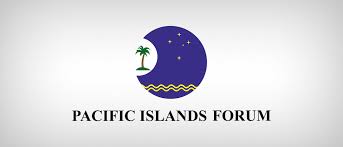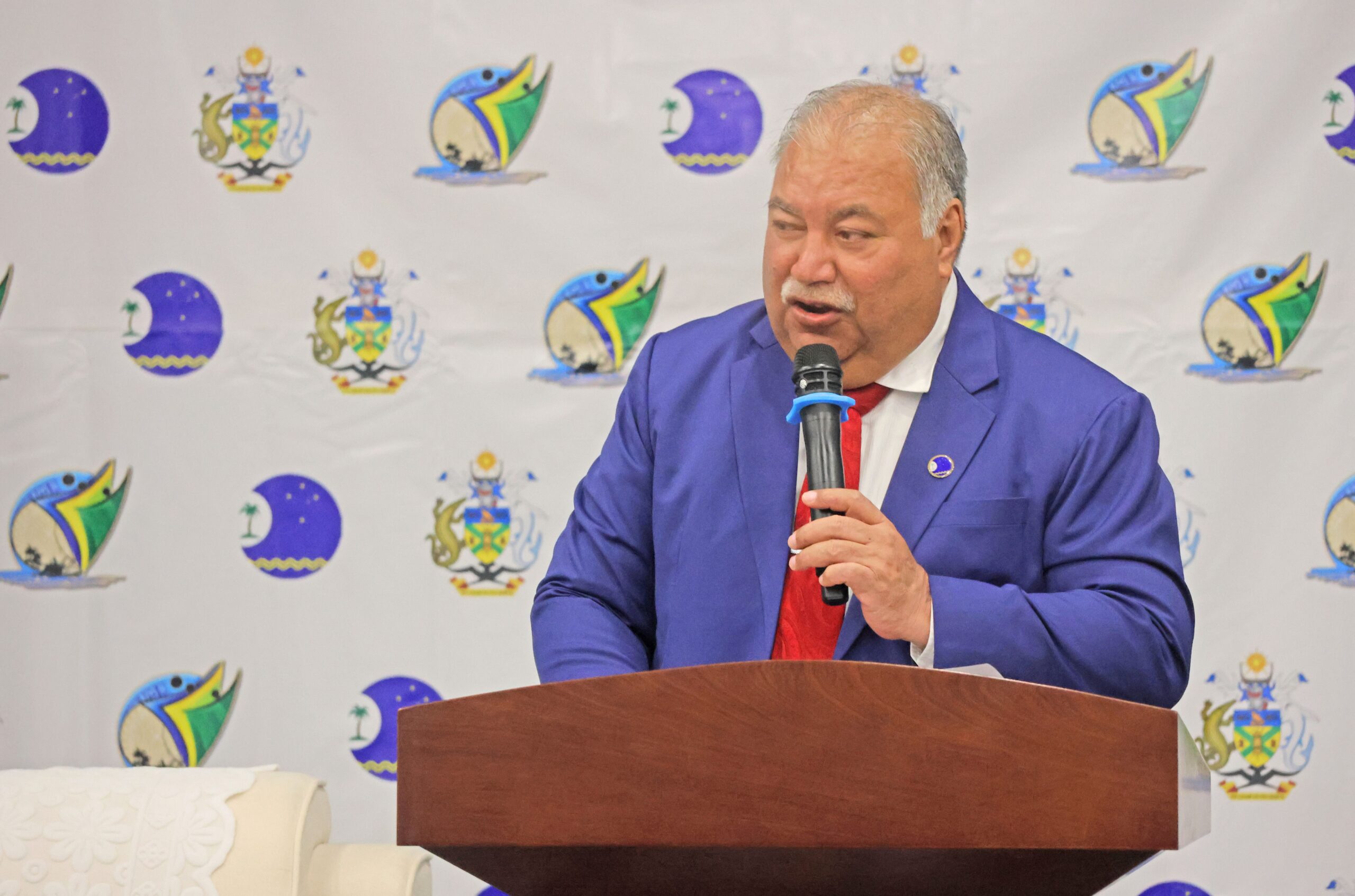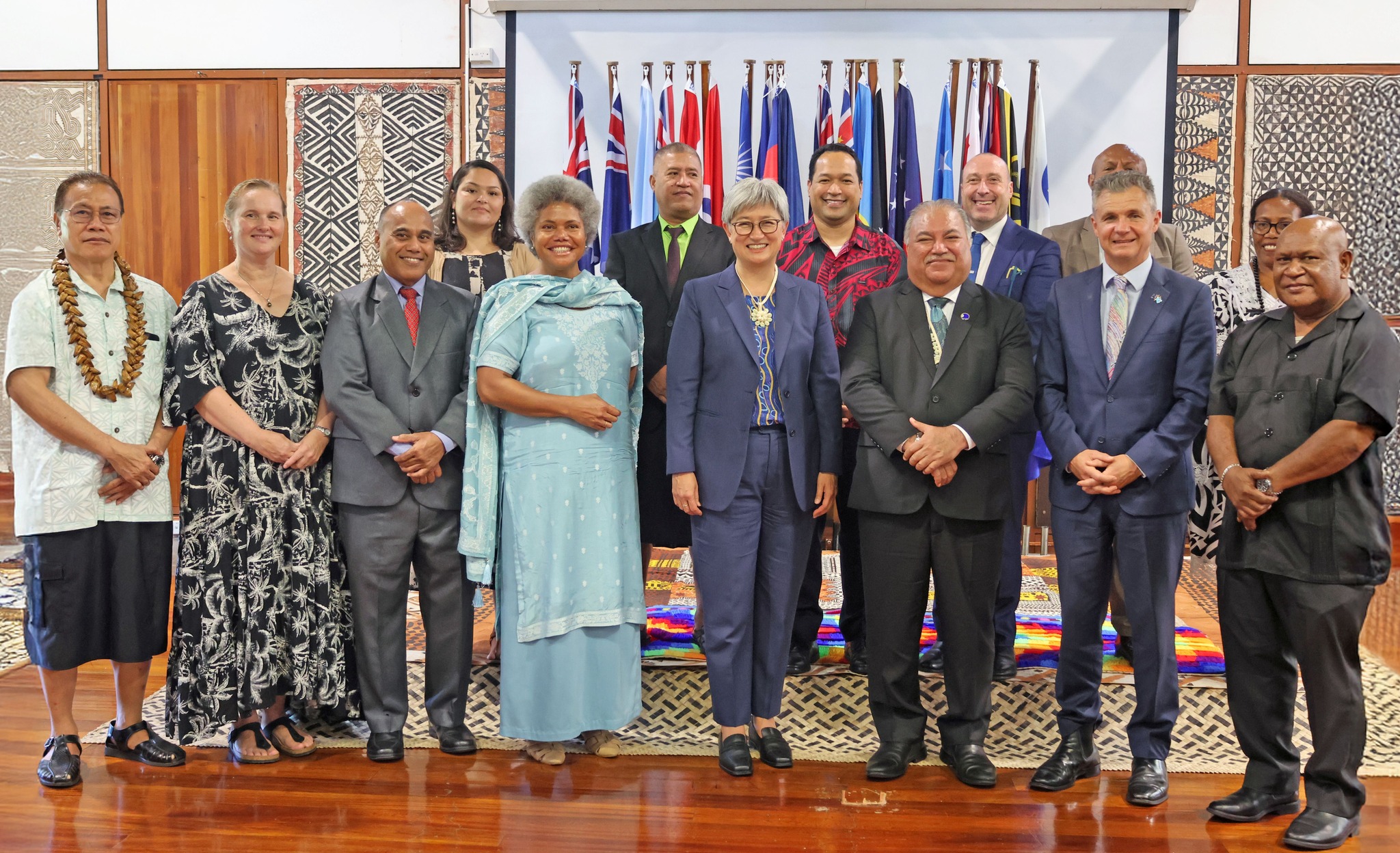Luke Allen – Military Political Analyst – Makati, Manila-lukeallenmanila@journalist.com
Suva, Fiji – In a landmark press conference, the newly convened Pacific Islands Forum (PIF) strongly called for peace and neutrality in the region, emphasizing that the escalating tensions between the United States and China should not spill over into the Pacific. This year’s forum, held in the capital city of Fiji, saw leaders across the Pacific come together to address pressing issues, including geopolitical dynamics, climate change, and regional solidarity.
The forum’s opening session was dominated by discussions on U.S.-China relations, reflecting the deep concern among Pacific nations over the potential for their region to become a battleground for superpower rivalry. The PIF leaders collectively underscored the importance of maintaining the Pacific as a zone of peace and cooperation.
Forum Chair and Prime Minister of Fiji, Sitiveni Rabuka, articulated the collective sentiment of the member states. “The Pacific Islands Forum is committed to ensuring that our region remains a zone of peace, free from the geopolitical conflicts that are intensifying elsewhere,” Rabuka stated. “We urge all external powers to respect our sovereignty and our desire to remain neutral ground.”
The forum’s stance comes when the U.S. and China have shown increased interest in the Pacific, seeking to expand their influence through diplomatic, economic, and military means. The U.S. recently signed security agreements with several Pacific nations, while China has invested heavily in regional infrastructure projects.
Another significant topic of discussion was the future of New Caledonia, a French territory that has been the subject of ongoing independence movements. The recent referendum saw a majority vote against independence, but the debate over New Caledonia’s status remains contentious.
New Caledonian representatives at the forum expressed their desire for a peaceful resolution that respects the people’s will while ensuring stability and development for the territory. The PIF reaffirmed its support for dialogue and peaceful negotiation processes, emphasizing the importance of self-determination and respect for democratic processes.
The forum’s unity was tested by concerns over the leadership of its newly elected Secretary General, Baron Waqa. Waqa, the former President of Nauru, has a controversial track record that has raised apprehensions among some member states. During his presidency, Nauru faced criticism for its handling of human rights issues, particularly concerning the treatment of asylum seekers and refugees held in offshore processing centers.
Prime Minister Tuilaepa Aiono Sailele Malielegaoi of Samoa voiced these concerns during the press conference. “While we respect the forum’s decision, we must acknowledge that leadership is crucial in navigating these tumultuous times. We hope Secretary General Waqa will address past criticisms and move forward with transparency and a commitment to our shared values.”
In response, Waqa assured the forum of his dedication to upholding the principles of the PIF. “I am fully committed to promoting the values that bind us as a region. My past experiences have taught me valuable lessons, and I am focused on working collaboratively to ensure the prosperity and stability of the Pacific,” Waqa said.
The Pacific Islands Forum concluded its first day with a renewed pledge to advocate for regional unity and peace. The leaders agreed to establish a special task force to monitor and address external influences in the region, ensuring that the Pacific remains a neutral and cooperative zone.
As the forum continues, attention will also turn to other critical issues, such as climate change, which poses an existential threat to many Pacific nations, and sustainable development initiatives that aim to enhance the region’s resilience and prosperity.
The PIF’s call for the U.S. and China to respect the Pacific’s neutrality underscores the region’s determination to chart its course free from external pressures. As the Pacific Islands Forum progresses, the world will watch closely how this collective voice shapes the future of one of the planet’s most strategically significant regions.













